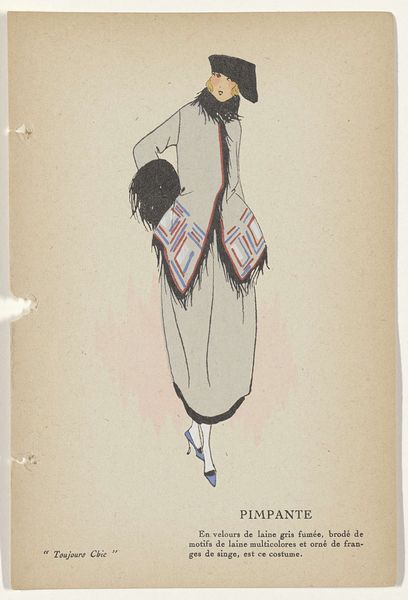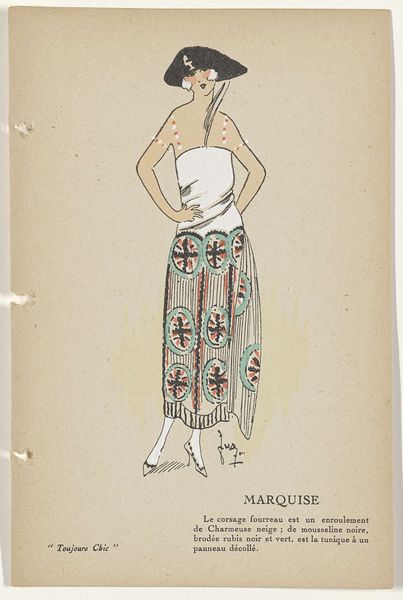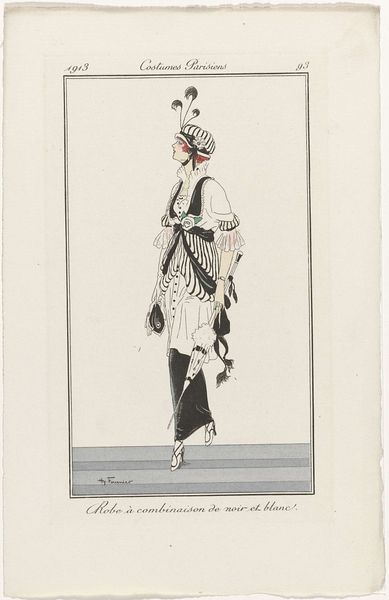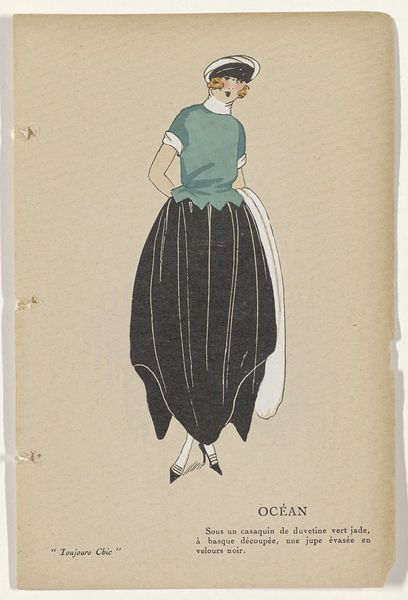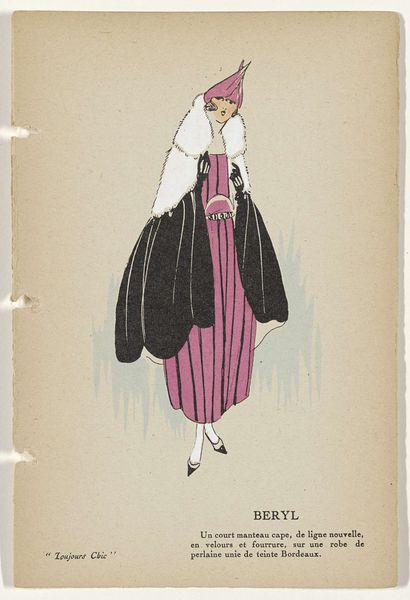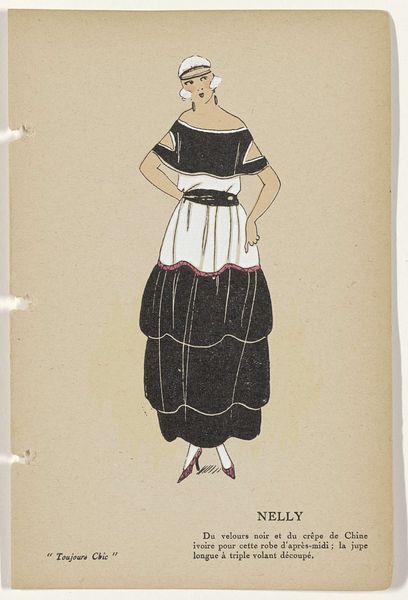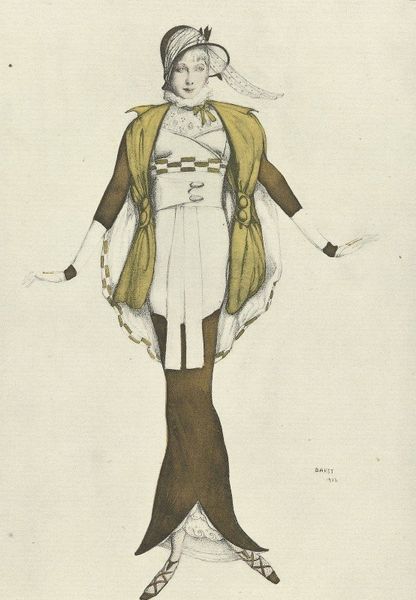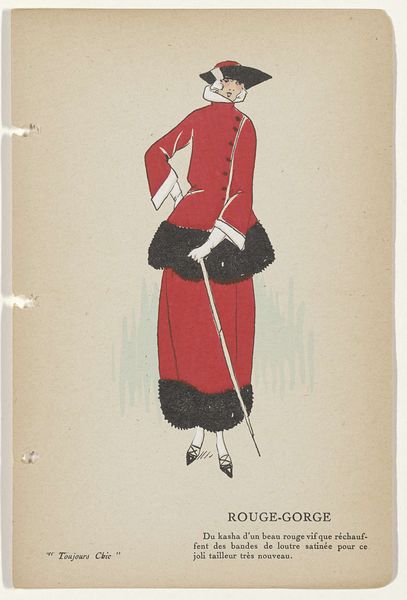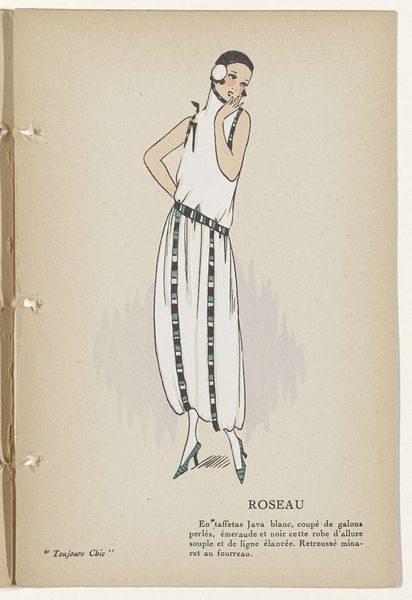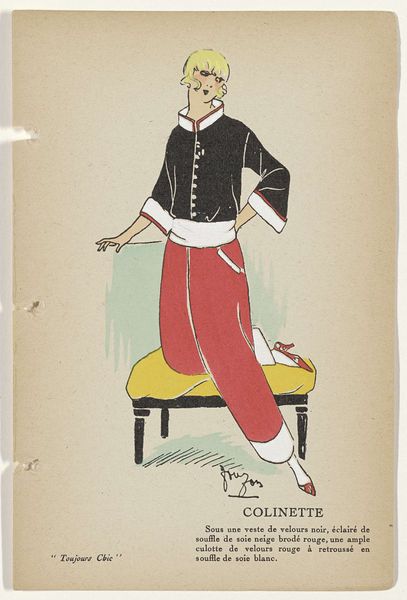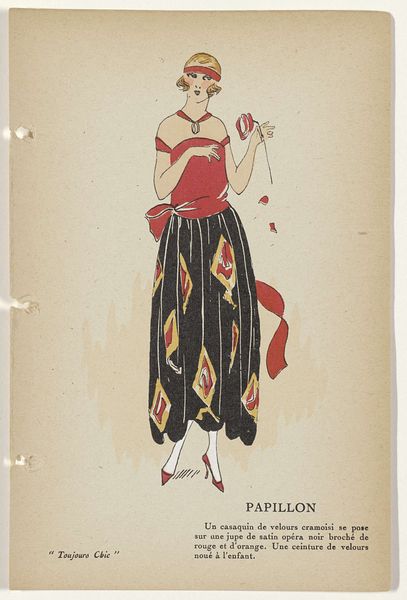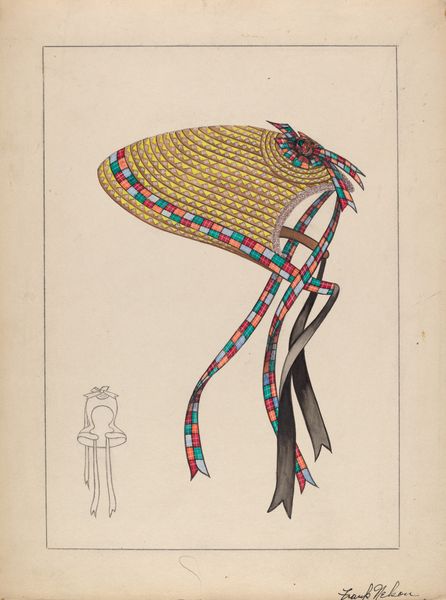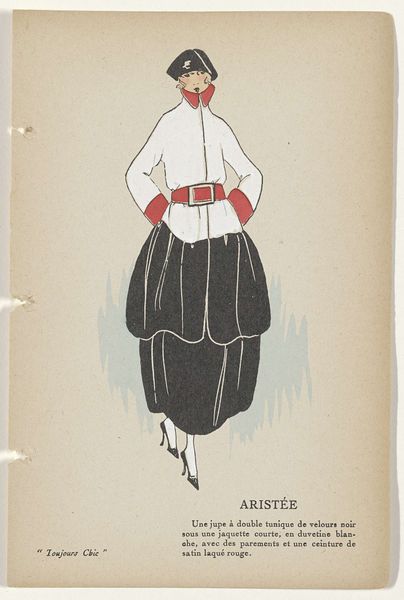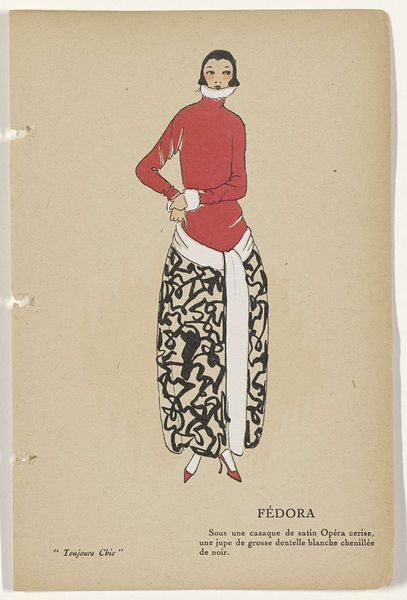
#
quirky illustration
#
childish illustration
#
cartoon like
#
cartoon based
#
cartoon sketch
#
personal sketchbook
#
flat colour
#
watercolour illustration
#
cartoon style
#
cartoon carciture
#
dress
Dimensions: height 180 mm, width 120 mm
Copyright: Rijks Museum: Open Domain
Editor: This is "Toujours Chic Les Robes, Hiver 1921-1922: Novelty," an illustration by G-P. Joumard. It's a striking piece, very much of its time. The contrasting colors and the rather bold skirt pattern give it a sense of playful modernity. How do you interpret this work? Curator: What I see is an interesting moment of tension and negotiation within the representation of women at the dawn of the Roaring Twenties. Consider the social context. After the upheaval of the First World War, there was a renegotiation of gender roles and an increasing desire for female autonomy, something reflected in fashion. How do you think the artist engages with or perhaps even resists these shifts? Editor: That's an interesting perspective. I hadn't thought about the potential resistance. I was so focused on the bold style. But now that you mention it, while the skirt is daring, the long, almost prim top, and the rather serious expression on the woman’s face does create a contrast. Curator: Precisely. Is this a celebration of the 'New Woman,' or does the artist offer a more complex view? Think about the limitations still imposed on women, even as they gained more freedom. The clothing is presented as "Novelty", but is that a positive thing? How much does that dictate the cultural standing of women during that era? The sketch sits on the fence in an era where everything started to shift. Editor: So, perhaps the illustration is commenting on the tightrope women walked, embracing new styles and freedoms while still adhering to certain social expectations. The description below also dictates materials for an outfit. So it isn't just 'novelty' to wear, but an expectation. Curator: Exactly! By viewing this illustration as more than just a fashion plate, we can unpack these complex negotiations and begin to understand the cultural shifts in play during the interwar period. The context enriches our reading, doesn’t it? Editor: Absolutely, I see it in a completely different light now. Thanks for sharing your insights!
Comments
No comments
Be the first to comment and join the conversation on the ultimate creative platform.
